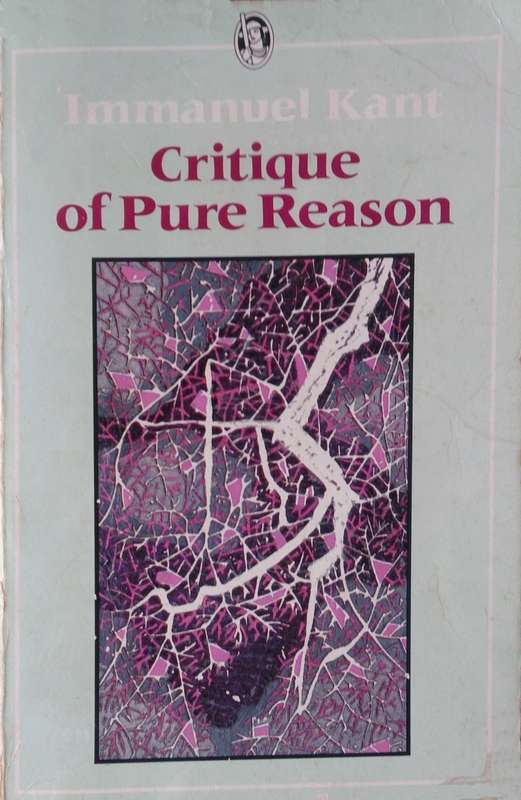
Critique Of Pure Reason by Immanuel Kant
Check my rate
| Main centres: | 1-3 business days |
| Regional areas: | 3-4 business days |
| Remote areas: | 3-5 business days |

| Main centres: | 1-3 business days |
| Regional areas: | 3-4 business days |
| Remote areas: | 3-5 business days |
Published by Everyman, 1991, softcover, 492 pages, some wear to covers otherwise condition: very good.
The Critique of Pure Reason by Immanuel Kant, (first published in 1781, second edition 1787), is one of the most influential works in the history of philosophy.[2] Also referred to as Kant's First Critique, it was followed by the Critique of Practical Reason (1788) and the Critique of Judgment (1790). In the preface to the first edition Kant explains what he means by a critique of pure reason: "I do not mean by this a critique of books and systems, but of the faculty of reason in general, in respect of all knowledge after which it may strive independently of all experience." Dealing with questions concerning the foundations and extent of human knowledge, Kant builds on the work of empiricist philosophers such as John Locke and David Hume, as well as taking into account the theories of rationalist philosophers such as Gottfried Wilhelm Leibniz and Christian Wolff. Kant expounds new ideas on the nature of space and time, and claims to solve the problem which Hume posed regarding human knowledge of the relation of cause and effect, and to have assessed the ability of the human mind to engage in metaphysics. Knowledge independent of experience is referred to by Kant as "a priori" knowledge, while knowledge obtained through experience is termed "a posteriori".[3] According to Kant, "a priori" knowledge expresses necessary truths. Statements which are necessarily true cannot be negated without becoming false. Examples provided by Kant include the propositions of mathematics, propositions "from the understanding in its quite ordinary employment",[4] such as "Every alteration must have a cause", as well as propositions from "natural science (physics)", such as "in all changes in the material world the quantity of matter remains unchanged".[5] Kant believed that he had discovered another attribute of propositions, which allowed him to frame the problem of a priori knowledge in a new way: the distinction between "analytic" and "synthetic" judgments.[6] According to Kant, to say that a sentence is "analytic" is to say that what is stated in the predicate-concept of the sentence is already contained (albeit covertly) in the subject-concept of that sentence.[7] The example he provides is the sentence, "All bodies are extended", which is "analytic" since the predicate-concept ("extended") is already contained in or "thought in" the subject-concept of the sentence ("bodies"). Kant considered the judgment, "All bodies are heavy" synthetic, since "I do not include in the concept of body in general the predicate 'weight'".[8] Synthetic judgments therefore add something to a concept, whereas analytic judgments only explain what is already contained in the concept. The distinctive character of "analytic" judgments was therefore that they can be known to be true simply by an analysis of the concepts contained in them or, alternatively, are true by definition. Prior to Kant, it was thought that all necessary truth had the character of being "analytic". Kant argued that not all necessary truths are analytic, but that some of them are synthetic. Having explained that the basis of analytic judgments lies in the principle of contradiction, (or the principle of identity), the task he set out to achieve in the Critique of Pure Reason was to explain the grounds of those judgments which are necessary and synthetic and these he termed "a priori synthetic judgments".
This entirely new translation of Critique of Pure Reason is the most accurate and informative English translation ever produced of this epochal philosophical text. Though its simple, direct style will make it suitable for all new readers of Kant, the translation displays a philosophical and textual sophistication that will enlighten Kant scholars as well. This translation recreates as far as possible a text with the same interpretative nuances and richness as the original.